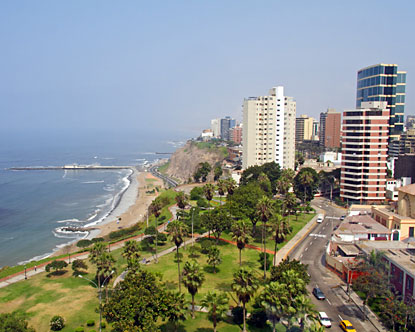Over the past year, I have had the pleasure of becoming friends with a group of people who have developed a large real estate construction and management company in Lima, Peru. What brought this to mind today was that they happen to be in-country this week.

I recently traveled to Peru myself as part of this project. On this trip, I was able to witness firsthand the spirit of work among the people there. More specifically, I was able to gain exposure to a group of companies that seemed to possess an unlimited sense of hope and rejuvenation.
The country of Peru has an interesting economic history. Like many Latin America countries in the ‘70s and ‘80s, it was plagued with numerous economic problems such as high inflation, narcotics trading, corruption, failed government initiatives, etc.
In the mid-‘90s, Peru underwent considerable free-market economic reforms that produced significant economic growth, spurred foreign investment, and brought inflation under control. For an economy that was once primarily based on agriculture and the mining of natural resources, a transition has occurred to where more than 70% of their GDP is now derived from the services.
For those people who grew up in Peru during very difficult and near hopeless economic conditions, the new economy is perceived as their best chance to accomplish something significant. During my time as a business professional, I have rarely witnessed as much talent voluntarily working long hours towards a mutual goal.
But, it went a little deeper. Many of these people saw their work as a way to tap the very best of who they are. Their management teams recognized this energy and made it part of their organizations.
Here are some specific things I noticed about their managers:
- They expect their organizations to hire the best talent. They settle for nothing but the best.
- They expect these talented people to set the bar high and be fully engaged in their work.
- They measure everything and everyone. The managers made it clear that without reliable data you can’t set meaningful goals and assess daily progress.
- They are constantly trying to discover what their clients want.
- Most importantly, they have the courage to be constantly active. They don’t get stuck in inactivity, which many organizations and people tend to do.
I was inspired, and I wish that more organizations in our country could tap into these principles. While the financial results were impressive among these companies, the positive energy and passion is what caught my attention the most.

